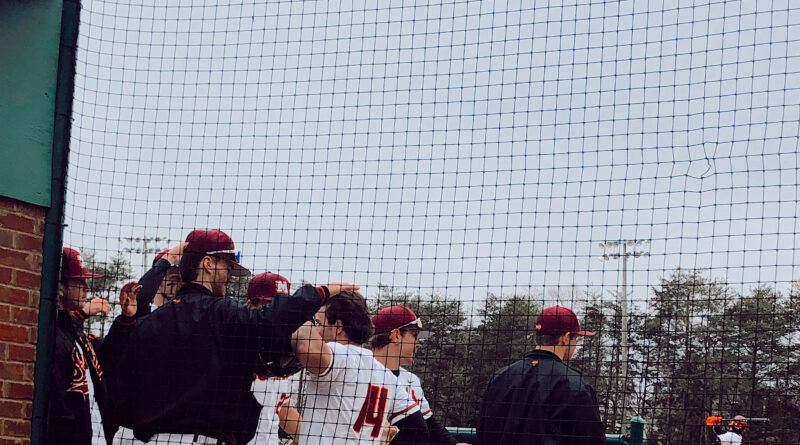Male Vulnerability in the Athletic Environment
A topic I recently came across and have been pondering ever since is male vulnerability in the athletic environment. Watching several men close to me and others around me express their emotions in explosive ways, or not at all, often had me thinking, “why is he acting like that?” A common societal standard is that men shouldn’t be vulnerable; they should tough it out and suck it up. My curiosity led me to explore what that was like in sports environments and how that affected players.
When I first went about looking into this, I turned to several baseball players I knew. I asked Brett Thompson, a sophomore, Brandon Schlaubal and Brice Klepfer, both juniors, their thoughts on this topic. I started off by asking them if they felt that they were able to express their emotions growing up. Surprisingly, two out of three answered “no” (one gave a “hell no!”). When asked how that transferred to the sports environment, Schlaubal thought quietly for a second and then said, “I started taking everything I had, that I kept in. These emotions would end up being built up, and then I would take it out when I was playing.”
I also reached out to our Maryville Baseball head coach and alumni, Coach Clint Helton, and our Assistant Professor in Exercise Science, Dr. Jeremy Steeves, for their takes on this issue.
Helton claimed that recruiting and fighting for a spot on the team can “breed a lot of stress [and] anxiety.” Steeves seemed to agree, discussing that as an athlete in the football side of things, wanting to keep your starting position and maintaining a perception of being a “tough athlete” can put a lot of stress on players.
We can even see this societal standard in professional athletes. Steeves brought up some examples, one of which was professional snowboarder Sean White. After White burst into tears at the end of a competition, relieved it was over, he received a pretty good reaction from the public to his demonstration of male vulnerability. On the flip side, as Steeves noted, an NFL player named Andrew Luck did not receive the same warmth when he stepped away for his own health, which was impacted to an extreme length. He was criticized for being “soft” when prioritizing his health, all because he was an “all-star player”. Through these two examples mentioned by Steeves, we can see the polarizing sides to male vulnerability in the athletic environment.
When I asked Helton if he grew up being able to express his emotions, he said he did think he could, and Steeves agreed. Helton admitted that the most common emotion he sees in players is outward frustration. To combat this, Helton took on a different stance than “old school coaches”. He started off by trying to see his players as a person first, and a player second. By having that relationship, it builds a space to be vulnerable when you need to. Though a very quiet, and seemingly stoic man, Helton proceeded to say something that took me by surprise.
“At the end of the season, this usually happens: you’ll be one of them crying. And I’m going to be one of them. It happens every year,” he added with a laugh. “I try to make myself more vulnerable, to be unapologetically myself…It’s hard as a coach to be vulnerable, and to be consistent everyday, [but] showing little areas of vulnerability allows them to be vulnerable, too.”
The stress of not wanting to let teammates down and the desire to show your coaches you are worthy of playing can cause athletes to be explosive or reactive when they don’t have a good at bat or a good play, and this lack of “success” can be viewed as a sign of weakness for players. This stress can look like slamming a helmet, throwing their gloves, and the overall explosive temperament often expected or seen in male dominated sports.
Identifying with their position in a sport and equating their performance to their worth can lead to a very mentally tough situation for collegiate athletes, and adding an academic stress element to that can create a recipe for mental strain and burnout. This is why Coach Helton said that he’s tried to not identify as only a baseball coach. “I am a brother, a husband, a grandson, all these things, and a baseball coach,” said Helton.
Starting with the simple question of “why does he express himself in that way?” led me to an even greater understanding of challenges for male student athletes, but also solutions for them. By developing other aspects of their life, building a relationship with their coaches and having trust involved, an athlete can feel free to be themself. They can handle struggles through school and the pressure of playing a sport at a different intensity than most achieve. They can learn to control what they can and let go of what they cannot. All of this allows them to step into a space of vulnerability.

